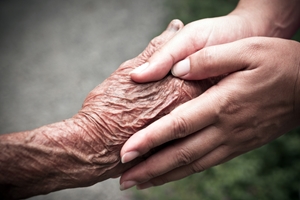As baby boomers age, so does a large population of World War II, Korea and Vietnam veterans. As a result, the U.S. Department of Veterans Affairs is assigned the task of developing programs that will keep them comfortable and healthy throughout their years.
End-of-life care
NPR recently reported on a portion of the money being put into end-of-life care for veterans. One way they are beefing up resources for older vets during life after service is their partnership with the National Hospice and Palliative Care Organization. Together, the two teams work to make veterans and their families as comfortable as possible as they age. What sets those who have served apart from others in hospice is what they have witnessed throughout their lives and how they have coped. Some get sporadic reminders of war later in life, and health care workers should be trained to prepare for that and learn how to ease their patients back to rest.
"People who have PTSD, maybe have not had it unmasked their whole life, but … all of a sudden they get flashbacks," Alice Beal, Ph.D., who directs VA palliative care for most of New York City, told NPR.
Paying special attention to veterans in their end-of-life care can help show respect to those who have served and make sure that they're comfortable and at peace.
Long-term care
It's not just hospice services that are available to senior veterans. The VA also helps with geriatrics and extended care services, which can provide care for those with chronic or life-limiting illnesses, as well as disability or injury. According to the VA's website, this includes:
- Nursing homes and residential settings – Community living centers, medical foster homes and assisted living communities are just some of the options offered for older veterans in need. These communities typically include many different socialization and wellness activities for like-minded residents to take advantage of. They can range from independent living communities with minimal assistance to nursing care with medical help.
- Home-based services – As the name implies, this service covers things like visiting aids, adult day care and other services that can provide support within a person's current residence. This can be beneficial for those who need light assistance, but prefer not to leave their home.

